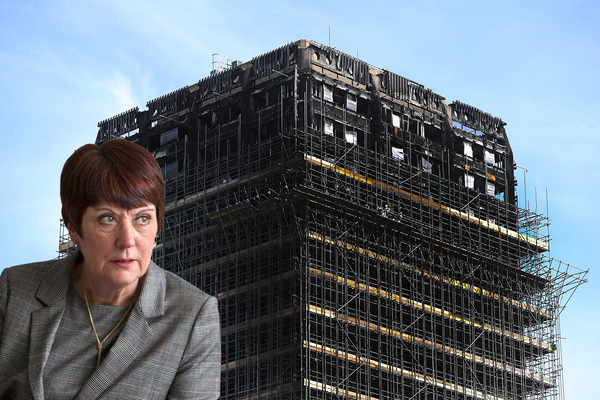You are viewing 1 of your 1 free articles
Further changes to resident engagement are on the way
Prompted in part by Grenfell, the government and social housing providers are looking again at their approach to engaging with tenants, writes Eamon McGoldrick
Resident engagement has been evolving for many years, with landlords proudly sharing best practice.
However, the Grenfell tragedy has prompted the government and housing providers to review their approaches to this critical service area.
At a national level, there have been two important recent developments.
First, Grenfell forced the government into a series of national conversations with social renting tenants.
The housing minister approached the four national tenant bodies and asked them to facilitate roadshows attended by more than 1,000 tenants.
It was no surprise that tenants complained about negative perceptions of social housing and how they felt stigmatised by years of negative media coverage.
These conversations may prompt the government to consider setting up some form of national tenant forum, which they could consult when they are reviewing policies.
“Many landlords have already been adopting more inclusive and modern methods of resident engagement.”
Secondly, Dame Judith Hackitt, in her recent report on building regulations and fire safety, said a lot more needed to be done to ensure residents’ complaints are properly addressed. She also recommended the government fund organisations to work at local and national level to develop a culture of engagement for residents of all tenures.
We will have to wait for the Social Housing Green Paper to see if there is a new dawn for resident engagement supported by the government.
At a more local level, many landlords have already been adopting more inclusive and modern methods of resident engagement.
I recently chaired the National Resident Involvement Conference and really enjoyed hearing about how resident engagement is evolving.
In recent years, there has been reduced use of service-specific panels, participatory budgeting and suggestion boxes.
These methods have been replaced by online forums, videos on YouTube, high-rise consultation groups and shorter, sharper scrutiny exercises. Some of these changes relate directly to Grenfell, but others were under way before the tragedy.
Changes are also taking place in the ALMO sector, which has always had residents at the centre of its governance arrangements.
There are more than 100 resident board directors across 33 ALMOs from Cornwall to Newcastle, and they enjoy shaping and monitoring service provision.
However, some ALMOs have reported difficulties in recruiting residents at board level.
This is partly because ALMOs have diversified and moved into new spaces such as building new homes, managing energy companies, running other council services and generating new income.
“Some ALMOs have reported difficulties in recruiting residents at board level.”
For some residents, this means reading feasibility reports for new ventures instead of monitoring and scrutinising the housing management services they receive as customers. In response, some ALMOs have reviewed and changed their governance arrangements to meet residents’ changing needs.
For example, Your Homes Newcastle (YHN) recently moved to a smaller 12-member board, keeping four places for council nominees.
However, instead of splitting the remaining eight places equally between residents and independents, which had previously been the norm, YHN introduced a skills-based role profile and selection process to make the appointments.
This has resulted in seven independents and a tenant being appointed. To ensure residents are involved in the governance of YHN at the highest level, they set up a customer services committee which consists entirely of tenants and whose role is to monitor and scrutinise the housing management services provided by YHN.
The customer services committee reports directly to the main YHN board. It is very important to note that these changes were implemented after all residents and council members were consulted.
“If they are serious about resident engagement, landlords will only introduce changes after the fullest possible consultation with their residents.”
The organisation may be breaking new ground but it has the full support of residents.
Derby Homes has similarly set up a tenant-led operational board reporting to the main board. This maximises opportunities for residents to monitor and shape services without having to take on the full responsibilities of becoming a company director
Other new methods of engaging residents in the ALMO sector can be found in a best practice briefing titled ‘Every Voice Counts’, which is on the National Federation of ALMOs’ website.
In summary, a combination of the need to move with the times and the Grenfell tragedy means there are more changes in resident engagement ahead.
Landlords should share best practice, but most importantly, if they are serious about resident engagement, they will only introduce changes after the fullest possible consultation with their residents.
Eamon McGoldrick, managing director, National Federation of ALMOs
More on the Hackitt Review
The Hackitt Review: key recommendations at-a-glance Inside Housing breaks down the key areas of the final report from Dame Judith Hackitt’s review of building regulations
Brokenshire: government will consult on banning combustible cladding The housing secretary announces a consultation despite the Hackitt Report findings
Dame Judith Hackitt: the interview Dame Judith Hackitt spoke to Inside Housing shortly after releasing her much-anticipated review of building regulations
Final Hackitt report calls for new regulatory body but does not ban combustibles Dame Judith Hackitt has called for a regulatory body to be set up to oversee the safety of buildings, but has stopped short of a prescriptive approach or the banning of dangerous cladding.
Grenfell survivors ‘saddened and disappointed’ by Hackitt report Reaction to Hackitt’s findings decision to ignore calls for a ban on combustible cladding













